While Europe was recently facing the most important elections in its history – with the concept of identity once again set to play a crucial role – we visited the places where Europe’s worst nightmares have come true. From Srebrenica to Kosovska Mitrovica – cities that fell victims to nationalism – some who were youngsters then have come back to reinvent the identity of the country dissolved 20 years ago.
What does being European mean today? As the EU turned 62 this year, the youngsters belonging to that union are now asking themselves why they should be passionate about something that already exists. The answer to that question might be clarified by those who are not part of the European Union. What can we learn from the Balkans while we digest the results of the European elections? How can there be a new perspective where division still prevails?
Ours (the twentieth century) has been the century of departure, of migration, of exodus, of disappearance, the century of people helplessly seeing others who were close to them disappear over the horizon.
If emigration in 1982 was an act of betrayal in Eastern Europe, that is not how it seemed in 1992. After 1989, the desire to have what Vaclav Havel called “a normal political life” led to mass emigration.Ivan Krastev: After Europe, Penn University Press, 2017 Is emigrating today from Eastern European countries still seen as both a demographic and a cultural betrayal?
By the end of 2013, 5.7 million people originating from the Western Balkans lived abroad, bringing the region’s average emigration rate to 31.2 percent – ranging from 18.2 percent in Serbia to 45.3 percent in Montenegro.Marjan Petreski et al., The Size and Effects of Emigration and Remittances in the Western Balkans. A Forecasting Based on a Delphi Process, Südosteuropa. Journal of Politics and Society, De Gruyter, vol. 65(4), pages 679-695, December. The Organisation for Economic Co-operation and Development (OECD) projects that Serbia will lose around $9 billion as a direct result of the brain drain in the science, technology, and innovation sectors.
It is not only the youngsters who are leaving the Western Balkans. According to the Statistics Office of former Yugoslav countries, the median age of people fleeing Serbia is 43, followed by Croatia with 42, Bosnia and Herzegovina, where the median age is 39, and Kosovo where it’s 29. Compared with 1989, 18.03 percent of the population of Bosnia have left the country, 7.63 percent have left Serbia, and 7.62 percent left Croatia; the figures for Kosovo and Slovenia are 4.27 percent and 8.99 percent respectively.
The question to be raised today is: how many people are going to be living in these countries in 10 years’ time? We met people who have decided to come back to the countries that most people leave for Western Europe if they can.
Irvin Mujčić
Irvin Mujčić lived in Italy from 1992 to 2014, having escaped the genocide when he was five years old, together with his two siblings and his mother. He lost his father and uncle. After 22 years he decided to come back to his city of origin, trying to work on its resilience. This does not mean forgetting the genocide, but rather reconsidering the importance of the city’s natural surroundings that were its distinguishing feature before the war. The project he launched three years ago, the House of Nature, aims to foster sustainable development and the rebirth of the devastated territory.
Survive or disappear
Irvin moved back to the city of Srebrenica, where his father disappeared in 1995 – a place that still represents one of the worst pages of Europe’s recent history and from which many are still fleeing. Irvin came back with a mission of personal and territorial resilience. With his project, Srebrenica, city of hope, he founded what today he describes as a House of Nature – a rare example of sustainable development in present-day Europe.
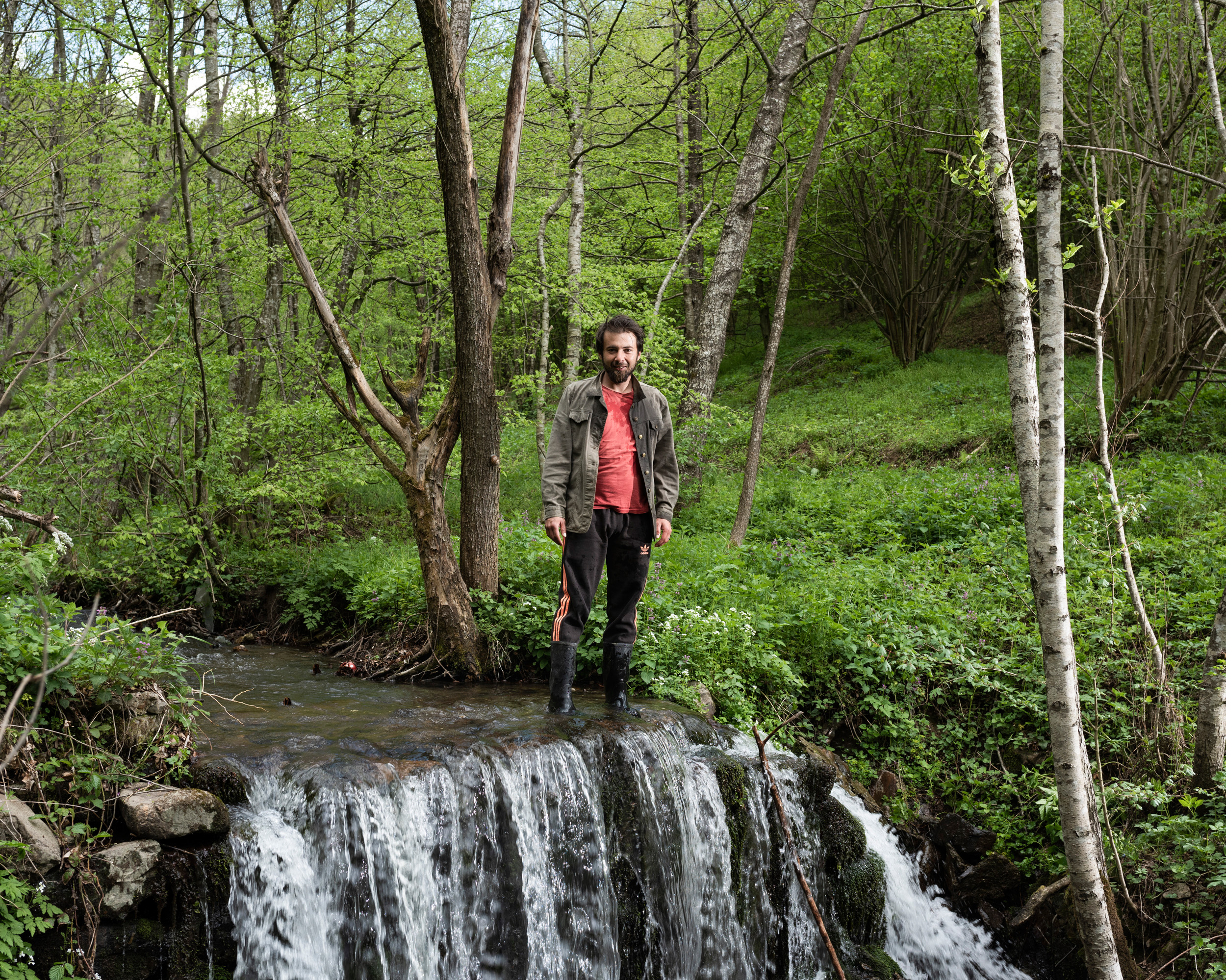
Irvin Mujčić left Srebrenica in 1992, when he was 5 years old, together with his two siblings and his mother. In 1995, during the genocide, he lost his father and uncle. Their bodies are still missing until today. Since he returned to Srebrenica he is working on the “House of nature”-project, bringing visitors to the outskirts of Srebrenica, a mostly natural surrounding, to promote the importance of a natural environment. Photo: © Martino Lombezzi
“What sense does life have if this city dies? Starting from this question, the desire to live in my city of origin once again was becoming increasingly strong.” This was the first thing Irvin told us when we met him in his father’s house in Srebrenica. We went to visit him on 1 May, which is still a very significant festival, as it was during former Yugoslav times. It was a cold and wet 1 May, and Irvin prepared a small fire in his place to warm us. “If you want to overcome trauma you have to face it,” he said, noting that some who came back found they couldn’t sleep at night. “My choice was really important for me because I took exactly the opposite decision compared with most people living here in the Balkans. I decided to come back. Today, massive numbers of people from former Yugoslavia are leaving their homes to go to work in Germany. I did exactly the opposite. I left my very well-paid job in Brussels, with a deeply rooted career, to come back to live in Bosnia, which currently faces 60 percent unemployment among young people.”
After living in Italy for 22 years, Irvin considers this move to be his first real conscious decision in life. “I knew that I was risking a lot, but I also understood that this was something that I really wanted to do in my life. Since I made that choice a lot of things have happened, also regarding my identity. You discover who you really are, what the important things are in life, because you leave your comfort zone to enter a completely unknown world. You can fail but you can also survive and do something really important.”
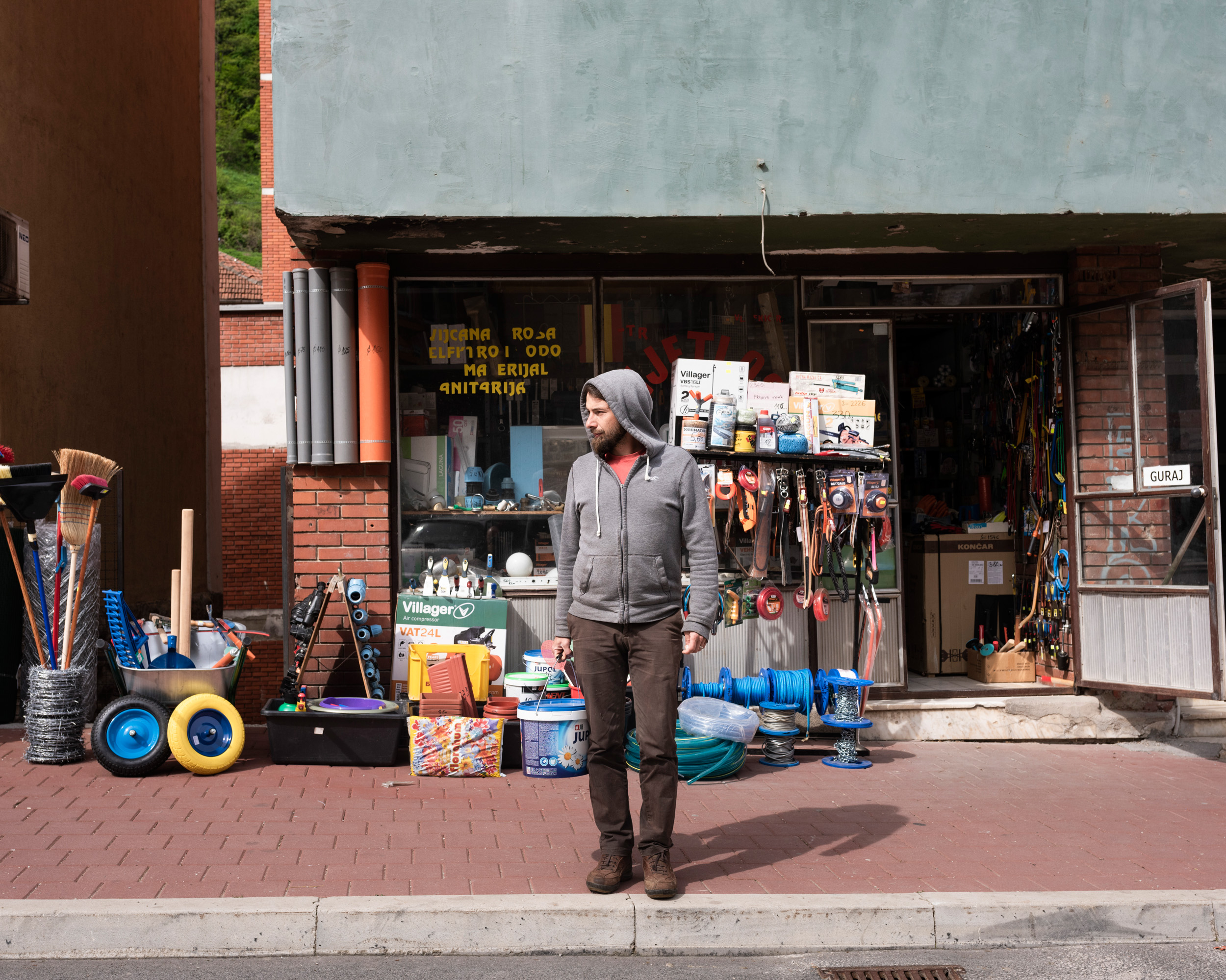
Irvin buys restoration materials in a shop in the center of Srebrenica. Soon he will leave again to restore another of the project houses in the woods. Photo: © Martino Lombezzi
In Srebrenica, time is divided between the peace, the war and the time of return. It’s interesting that peacetime is considered to be only the period before the war in the 1990s. “The war is still going on here but it’s being fought on the political and socio-economic level.” Survive or disappear – this was the option that the general of the Serbo-Bosnian army, Ratko Mladić, posed during the siege of Srebrenica in 1995. “I often think about this sentence today,” Irvin confessed. “Today politics has different consequences because people leave their hometowns to go to work in Germany. All that remains are the empty cities with the old people. The old people who earned money abroad are the only ones who return. This is the moment when you really ask yourself: survive or disappear?”
Srebrenica, city of hope
When Irvin started his project, his aim was to give Srebrenica a different image. “My city is only known for the atrocities of the genocide, but my project is called Srebrenica, city of hope. I want to show people the beauty of this place and tell the story of the inhabitants who decided to return.” Sustainable tourism is the core of the project which helps show a different way of seeing Srebrenica and a different way of seeing life in general. “We invite people to come and live in Srebrenica through visiting people’s houses here, hearing their own stories. What we currently lack in this world are the alternatives.”
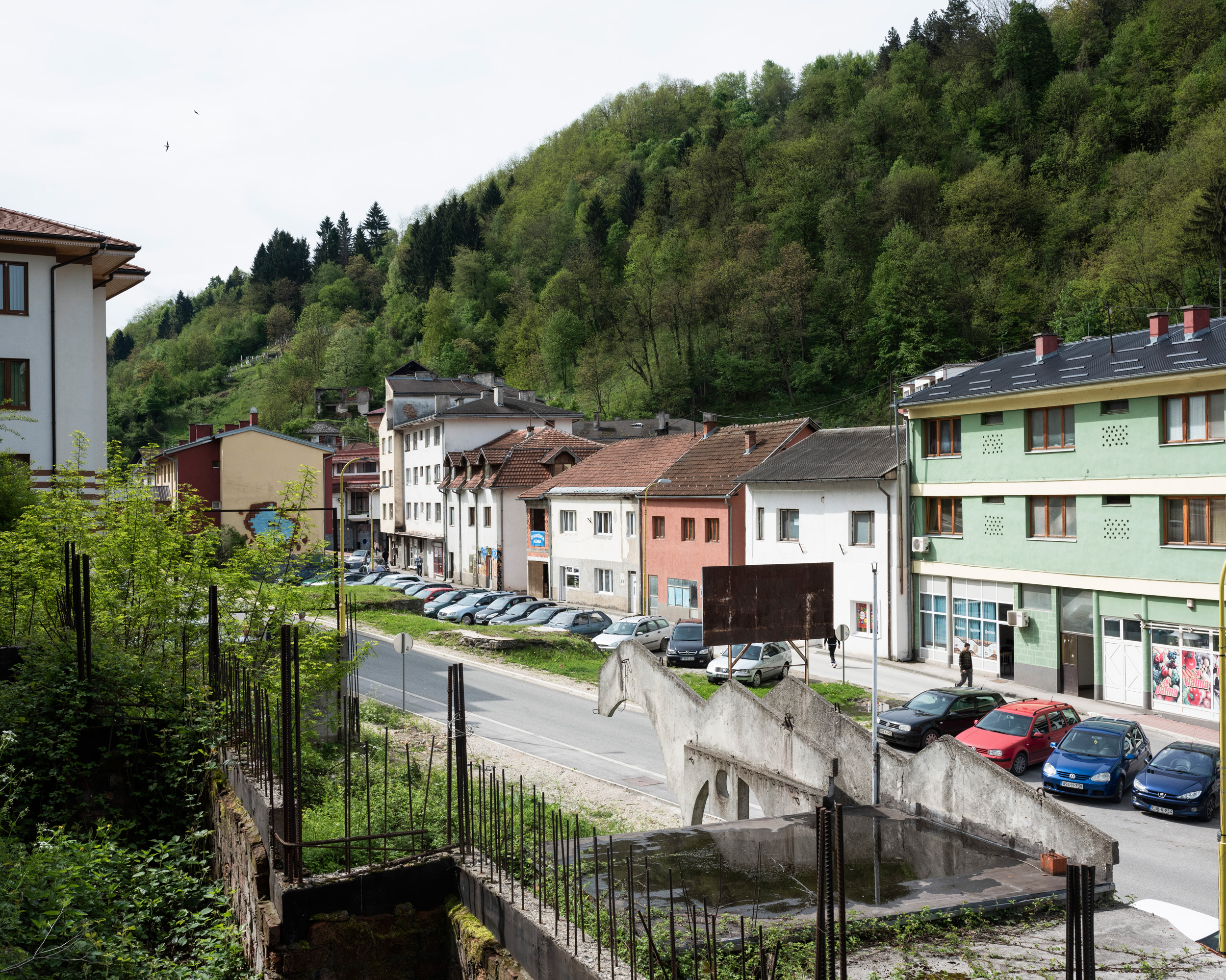
When Irvin started his project “Srebrenica, city of hope”, his aim was to give Srebrenica a different image. An image beyond the atrocities of the genocide. Photo: © Martino Lombezzi
And Srebrenica, with its own history of resilience, might be part of that alternative. “We work a lot with schools as well through the project ‘Learning from the past, enjoying the present, building the future together’.” Through that project Irvin tries to show what religious fanaticism leads to. “This is what is currently happening in Western Europe. We have more and more nationalism, racial hatred and misunderstanding of diversity. On the other hand, we try to show respect for nature as well. Throughout the war, Srebrenica showed that you couldn’t live without water and land and without solidarity and friendship. These are the elements that enabled people to survive during wartime.”
Srebrenica, city of hope aims to support the local economy so that people stop going abroad. “By creating tourism here we want to compensate for the lack of a local market. It’s all about a sustainable local economy and stopping the depopulation of this territory.” Six different villages around Srebrenica (Osmače, Lake Perućac, Ljeskovik, Jasenová, Potočari, Šušnjare) and four different families are involved in the project. One of the biggest problems today is to include young people who are particularly depressed here in Bosnia. They grew up in the post-war period with the nationalistic rhetoric. That’s why it’s of fundamental importance to do intergenerational work.
Irvin four years ago and Irvin today are two completely different people. When he came back from Italy, where he had lived for more than 20 years, it was like coming back from a forced exile. “When I arrived in Val Camonica, Italy, in 1992, only two people were against the arrival of the refugees from Bosnia. The majority of tourists who come here today are Italians and I like giving back something that I received from Italy. As I got to know the country of Italy, now I like to show others my own country.” Irvin is also the only one of his family who has actually decided to come back. “It has really helped my mother, my sister and my brother to come back here more often and to feel more connected to the country.” By developing his own way of conceiving his identity, Irvin sees Bosnia as a country with no tangible borders. “For me Bosnia is the way of living in harmony with nature and at peace with other human beings, and of respecting their traditions and their way of living.”
Emin Bektić
Emin’s family is part of the Srebrenica, city of hope project. The family lives with their 18 horses, surrounded by nature and landmines on land that still shows the scars caused by tanks. They show their visitors the other face of Srebrenica’s identity. Emin has returned from Germany, where he worked until 2000. He underlines his lifestyle as a “German pensioner”, who uses his guitar to try to defend the traditions of an area that has lost most of its population. “Where are our Serbs?” he asks himself in his poems.
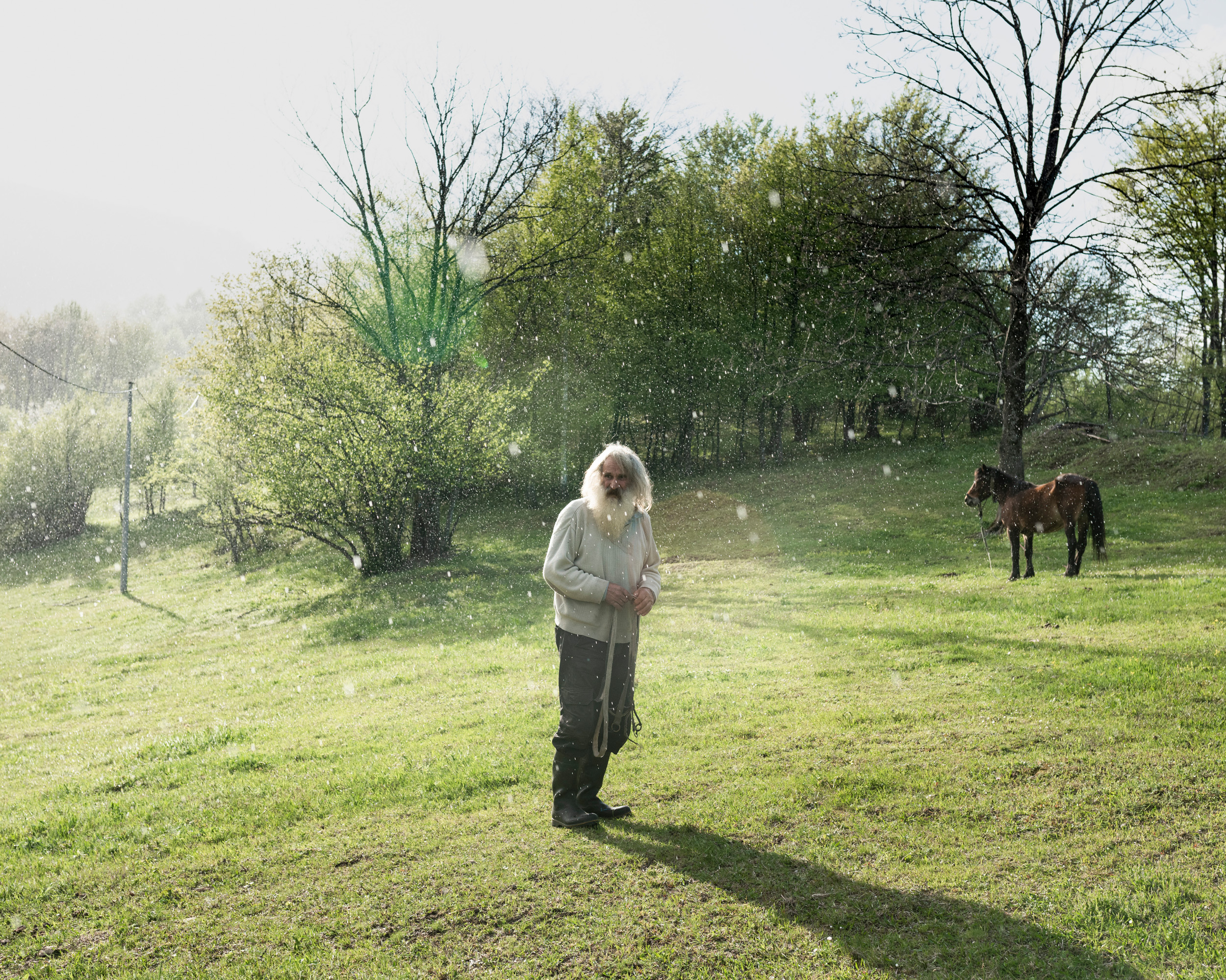
Emin Bektić and his family are part of the “Srebrenica, city of hope project”. The family lives with their 18 horses, surrounded by nature (and landmines on land that still shows the scars caused by tanks). It is important to Emin to show to his visitors the other face of Srebrenica’s identity. Photo: © Martino Lombezzi
Emin lived in Germany for 33 years working in near Dortmund. “I would never work down a mine in the Balkans. The conditions of work here are unacceptable. Today I would never live in Germany, but I wouldn’t live in Belgrade, Sarajevo, or Zagreb either. I’m old now and I want to walk on my own land.”
Emin would like his four daughters to stay in Bosnia as well. He told us that sometimes he believes in God and sometimes he doesn’t. “Both Christianity and Islam bother me. I am identified as Muslim. People here often say: ‘It was God’s will.’ But I ask myself, did God want me to kill you? Then I don’t believe in God. In these circumstances God doesn’t exist for me. If that was God’s will, then he is the worst enemy of humanity.”
While sitting on the grass on part of his land near Srebrenica, he laments the depopulation of his city. “Nobody lives here anymore. While you travelled the 16 km from the city towards our place, did you see anybody?” Emin asks me. “No one is left here. Serbs, Muslims, Gypsies, and Catholics used to play music together here. They would play all kinds of instruments. Now I only play for the visitors, mostly Italians, that Irvin brings. I don’t play for Serbs or for Muslims anymore. They seem ashamed of their history. Our people are ashamed of their own music. If you are ashamed of your own music and tradition, there’s no hope for you. Going to church or to the mosque won’t help you on that. I don’t need Germany; I want my own country. If you want to have a perspective for the future, you need to preserve tradition. I’m not clairvoyant, but I’m not blind either. I can see that we might lose our tradition.”
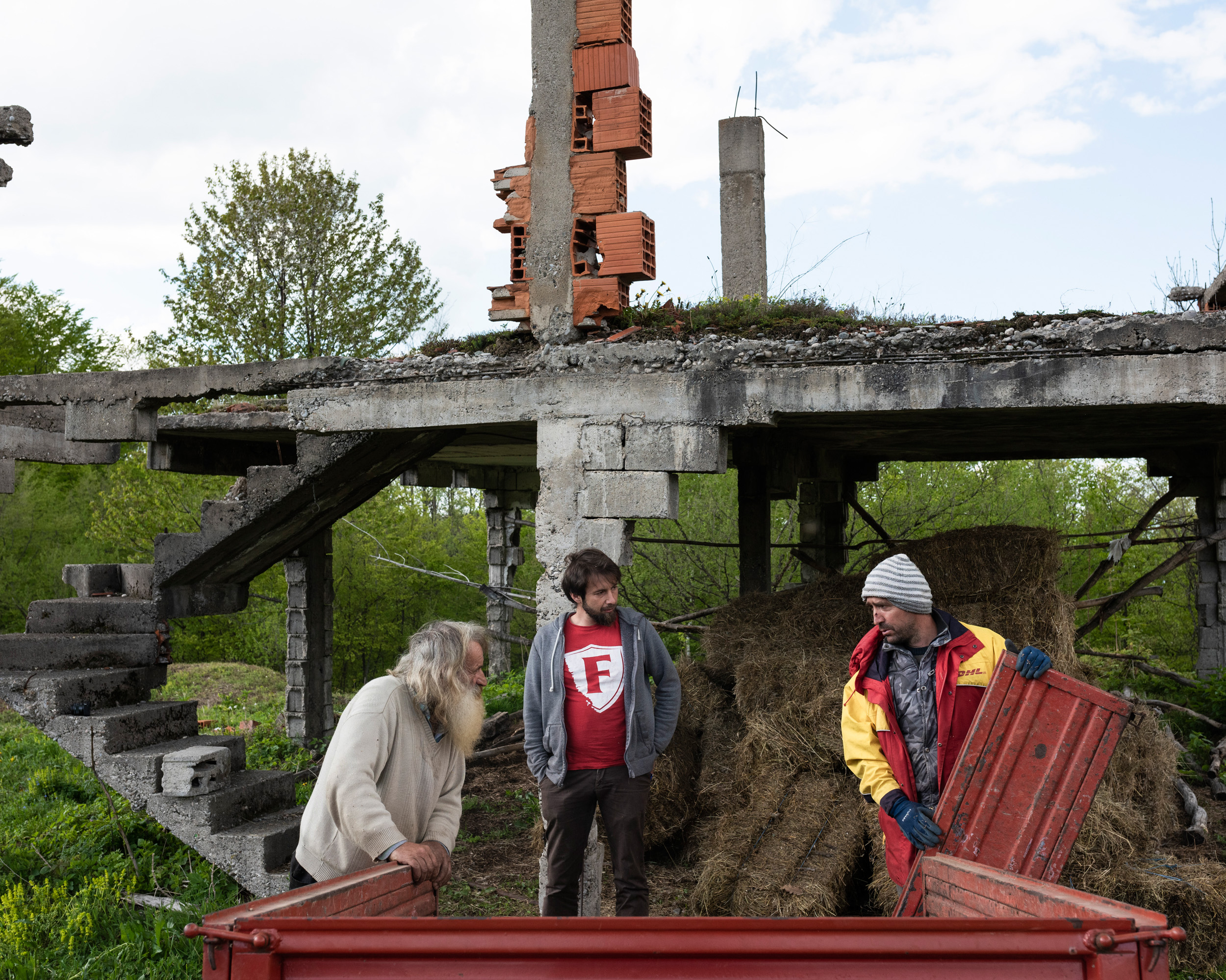
Emin Bektić and Irvin Mujčić are taking the delivery of hay for the horses. The ruins of a house which got destroyed during the war now serve as a barn. Photo: © Martino Lombezzi
In his poems he writes about the Ottoman empire, about Tito’s regime and, last but not least, about the last war. “There are none of ‘our’ Serbs here in Srebrenica anymore. All the people currently living here as Serbs came after the war.” “Survive or disappear” becomes a crucial thought once again as we gaze at the empty landscape in front of us.
This text is protected by copyright: © Marina Lalovic. If you are interested in republication, please contact the editorial team.
Copyright information on pictures, graphics and videos are noted directly at the illustrations. Cover picture: A family from Srebrenica which resettled in Tuzla after the war is back to the banks of the Drina for a barbecue and party during May 1st celebrations. A girl and two men on a boat trip on the river. Photo: © Martino Lombezzi
This article was produced as part of the Milena Jesenská Fellowship for Journalists at the Institute for Human Sciences (IWM) in Vienna, supported by the ERSTE Foundation and Project Syndicate.